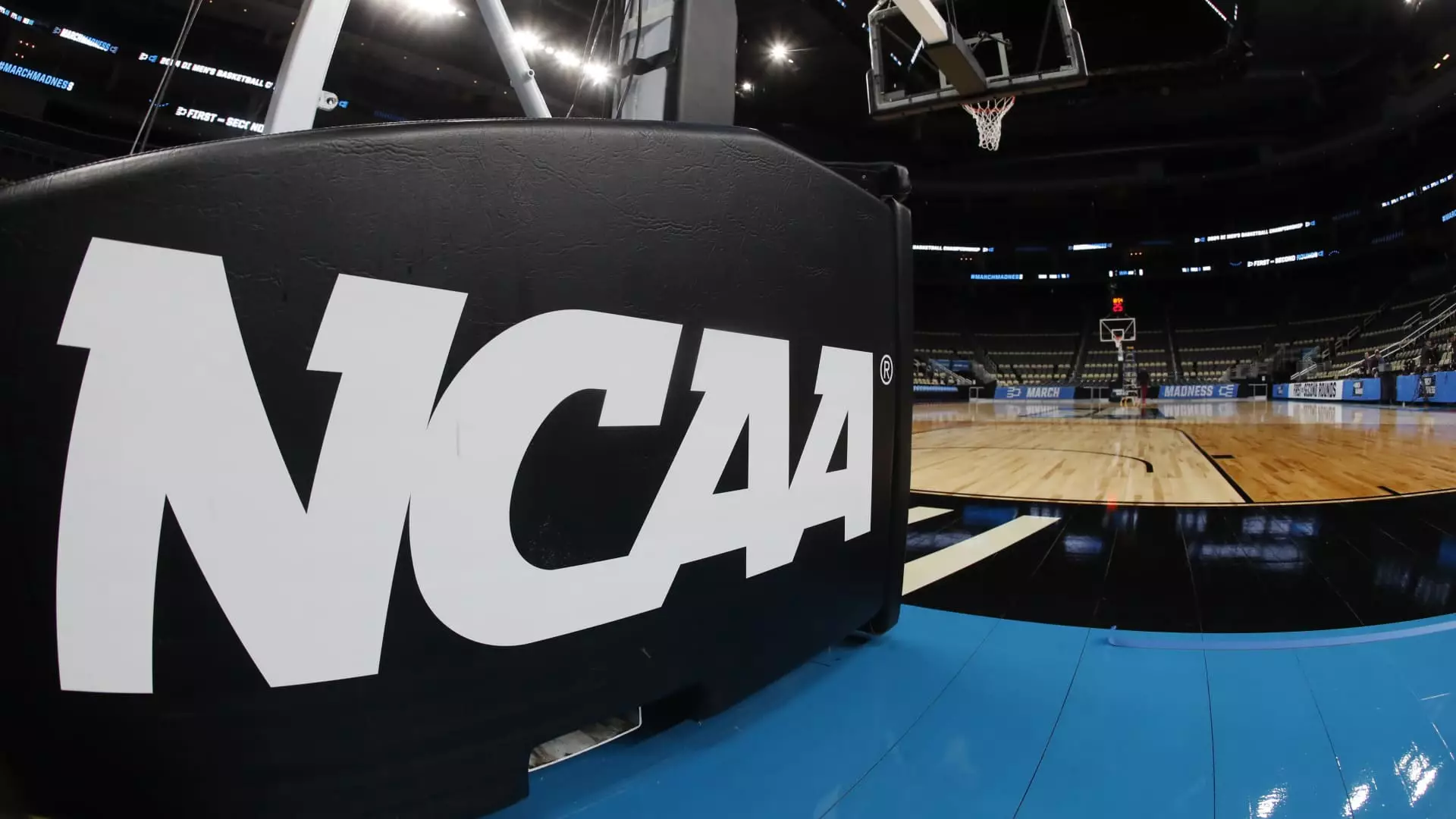In a significant and controversial move, the National Collegiate Athletic Association (NCAA) revised its policy regarding transgender student-athletes, specifically limiting the competitive participation of trans women in women’s sports. This change came just days after President Donald Trump enacted an executive order aimed at defunding schools that permit trans women to compete. The new NCAA guidelines permit students assigned male at birth to practice with women’s teams and access certain benefits, albeit barring them from actual competitions. Such policy shifts highlight a growing tension between inclusivity in sports and the perceived need for competitive fairness, a debate that continues to polarize advocates on both sides.
The NCAA’s latest regulations establish a framework that distinguishes between practice and competition, reflecting an inclination toward preserving what it deems as the integrity of women’s sports. While students assigned male at birth may enjoy practice privileges with women’s teams, engaging in formal competition remains off-limits. This nuanced stance raises questions about the underlying rationale for such a distinction: is the NCAA aiming to navigate a complex social landscape, or is it merely responding to external pressures, notably the directives from the Trump administration?
Moreover, these policies do not apply uniformly across all athletes, as those assigned female at birth who are undergoing testosterone treatments are also excluded from competing in women’s events. This facet of the policy illustrates a rigid dichotomy of gender that fails to recognize the spectrum of gender identities and experiences. Critics argue that the binary approach further marginalizes not only transgender individuals but also intersex athletes and those undergoing medically necessary hormone therapies.
As the NCAA represents over 1,100 institutions and more than half a million student-athletes, its pronouncement holds substantial sway. NCAA President Charlie Baker underscored the importance of establishing clear eligibility standards amidst the patchwork of state laws that have emerged regarding transgender participation in sports. However, critics contend that these newly instituted guidelines reflect a lack of compassion and understanding. They argue that the NCAA seems to prioritize conformity over individual rights and identities, a stance that may alienate many athletes striving for acceptance within competitive environments.
Chris Mosier, a prominent transgender triathlete, raised alarm over the implications of these regulations. Highlighting the rigidity of the policy in defining gender as binary, Mosier suggests that such measures do not only impact trans athletes but also those with intersex conditions and other nuances regarding gender identity. This perspective emphasizes the broader societal ramifications of the NCAA’s actions, which might serve to reinforce outdated and reductive forms of gender categorization.
The response from LGBTQ+ advocacy organizations, including GLAAD, reflects considerable alarm regarding the NCAA’s revised stance. Claiming that the move lacks grounding in medical research and fails to respect human rights, these organizations argue that such policies contribute to a hostile environment for trans and non-binary athletes. GLAAD characterized the NCAA’s actions as not only reactionary but also as a deferment to the disjointed messaging emerging from the Trump administration, which has a history of vilifying gender diversity.
These critiques illustrate a growing discontent with institutional responses that seem out of touch with contemporary understandings of gender and identity. Advocates assert that educational institutions should aspire to foster inclusivity rather than exclusion, promoting environments where all athletes can pursue their passions without the fear of discrimination or marginalization.
As the conversation evolves around gender, athletics, and policy, the NCAA faces an imperative to reconsider its position in light of scientific understanding and societal values. The need for nuanced dialogue that recognizes the diverse realities of student-athletes has never been more essential. Policymakers and sports organizations alike must engage with stakeholders across the spectrum to create frameworks that honor both the integrity of athletic competition and the rights of all athletes to participate, irrespective of gender identity.
Future policy should move beyond binary classifications and adopt a more inclusive approach, one that embraces the complexity of gender as a spectrum rather than a fixed concept. Only then can sports truly serve as a venue for empowerment, fostering participation among all individuals, regardless of their personal journey in understanding their identity. As the debate continues, it is crucial for the NCAA and similar organizations to listen to a broad array of voices and experiences, ultimately shaping a sports culture that embodies equity and respect.

